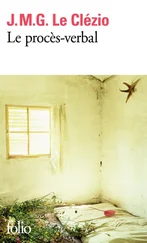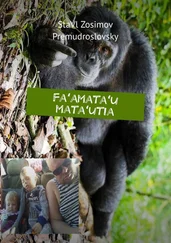Chancelade looked at the prison he’d made. In every square of the grille you could see the red-and-black-striped backs and tiny feet of the potato-bugs moving and waving about. It was like looking down on a town, a real town of steel and concrete with rows of windows opening into the little sealed boxes of apartments. It was a town that you could bomb or destroy or set fire to or raze to the ground. You could annihilate the inhabitants one by one, at random, without their being able to do anything to defend themselves. Chancelade looked down on the town from his own height and began to reign over it. He spoke to it, though he knew that none of his words would be understood. Every so often he would utter sharp orders. He’d say:
‘You, there.’
‘Yes, you. You think I haven’t seen you, do you? You just wait a bit.’
‘Stop! No trying to escape, do you hear?’
‘Go on, march, you over there — go round in circles!’
‘That’s right, keep it up!’
‘Watch what you’re doing, potato-bug No. 6!’
‘Up you get! And now what?’
‘Take it easy there, take it easy!’
‘Halt!’
‘And what about you? Do you think I can’t see you? I can see everything, let me tell you — everything!’
‘Hey you — leave the wall alone!’
‘Watch out or I’m going to get angry …’
Chancelade began with the bug in cell No. 16. It was a strong little creature and when the boy got hold of it between his thumb and forefinger it struggled and tried to escape by clinging on with its feet. Chancelade brought it up close to his face, looked at it and rebuked it gently. Then with his left hand he pulled off its legs one by one. When the punishment was concluded he put the bug back in its cage. It lay there motionless for a few seconds, as if dead. Then it tried to crawl along the ground, its whole body quivering with helplessness. Only its feelers went on waving to and fro in the air, searching for something to feel. Then Chancelade picked it up in his fingers again and put it down beside the scraper. Quite quietly, without anger, he spoke to it again. He said:
‘You see. You oughtn’t to have done that. You ought to have done as I told you. Now you can’t move any more. You haven’t got any legs.’
The boy got up, went and looked in the garden for a sharp stone, then came and knelt down again by the potato-bug. He saw that its wing-cases were partly open and it was trying to spread its brown wings.
‘Like to fly away, would you?’ said Chancelade. ‘But you can’t.’
With a desperate effort the insect managed to unfold its right wing.
‘In any case you won’t get anywhere,’ said Chancelade, ‘because I’m going to kill you with this stone.’
He gave it a little push with the stone and it rolled over on its back. Chancelade noticed that one of its back legs hadn’t been pulled off completely: the stump was moving back and forth as if the insect was trying to row with limbs that were no longer there. The feelers on its head opened and shut mechanically.
‘In any case you’ll be better off like this,’ said the boy. And he banged the sharp stone down as hard as he could. Then he looked, and saw the potato-bug squashed on the concrete, in the middle of a little pool the colour of tomato sauce.
A sort of anger rose in him. He suddenly had the feeling that his people had betrayed and abandoned him. He looked at the town with hatred. Then he spoke again. But his words fell on the earth like thunder, and his breath burned like the blast from a volcano. He told them he was going to kill them all, all, as he’d just killed potato-bug No. 16. They hadn’t trusted him. They’d rebelled. They’d refused the kingdom he’d offered them and hadn’t wanted him as their only god. For that they would know his vengeance. He was going to kill them all without exception.
To start with the boy banged with his stone at the inside of the cells. But the stone was too big — it had to be brought down four or five times before it would smash a potato-bug’s back. Some of them weren’t quite killed and dragged themselves round leaving patches of tomato-juice. Chancelade’s anger didn’t last. He threw away the red-stained stone and said:
‘Listen, all of you. I’ve found a way to punish you. I’m going to kill you with the scraper. I shall drop it on you and it’ll cut your heads off. I’ll be generous too — any that aren’t killed by the scraper, I shan’t do anything to them. They can live. Do you hear? All right then, move — see you’re not one of those that gets it in the neck!’
The boy crouched down, got hold of the scraper with both hands, lifted it up and held it in the air for two or three seconds. Below, the population of potato-bugs began to swarm in all directions. Some tried to escape, running as fast as their legs would carry them. Some shammed dead, crouching curled up with their legs and feelers drawn in under their bellies. Some lay there crushed or half-crushed, stuck in their pools of blood-red liquid. Several others, trying to run away, got their feet stuck in these pools and stood there feeling the bodies with their antennae, their mouths perhaps sampling the fluid that issued from their brothers’ entrails. Chancelade held the scraper poised above the insects a little while longer, without speaking, without thinking. All menace had entered into him, and hatred, and pity, and something that resembled fate. Then he opened his fingers and let the heavy grille fall on the town. The clatter of the metal on the concrete was followed by a dull silence.
Chancelade bent down and looked. He saw that nearly all the potato-bugs had been killed. Most had been sliced in two by the bars of the scraper: tomato sauce had spurted all over the grey metal. Some of them still crawled about, horribly mutilated, with half of their abdomen gone or their back torn away. Others had had their legs severed, and limped about in circles. Everywhere were gashed heads, slashed bellies, crushed thoraxes, broken limbs, wings torn to pieces. One had even been hit on the hindquarters by the corner of the scraper just as it was trying to escape. The heavy metal had pinned it to the ground, but all the free part of its body was still alive, and strained with all its legs to get away. At last it did succeed in freeing itself, but it left half its belly behind under the scraper. It managed to crawl along for a few centimetres, leaving a trail of innards. Then, at the end of the red streak, it died.
No groan, no cry of pain arose from the ravaged town. On the contrary, a strange silence reigned, as if everything were quite normal. But that silence was much more terrible than lamentation: it was an intense, tragic silence that entered into the boy’s ears and slowly chilled him. It was a distant silence, like some extra-terrestrial disaster, when a star explodes suddenly millions of light-years away and disappears into the darkness of space as if it were no more than a lamp switched off.
What had just taken place, though Chancelade did not fully realize it, was something terrible. It was more important than the place or the moment, more important than himself. It was something unbearable to anyone who could free himself from this piece of earth and judge the truth of the event as a whole. Here once again fate had acted alone. Fate, ignoble fate that prepares events, had chosen the path to this murder, for nothing, merely so that the act should be accomplished. This patch of concrete had been made for it. This house, this garden, this grass and these trees had gradually been put there, year after year, just for this. This sky had been filled with clouds, this sun had risen and climbed to the zenith, this wind had blown, this water had flowed in the streams, these planes had droned above the horizon, only for this: so that this boy, born one day, should come and sit on the second step outside the red-brick house and kill this town of insects without thinking.
Читать дальше












